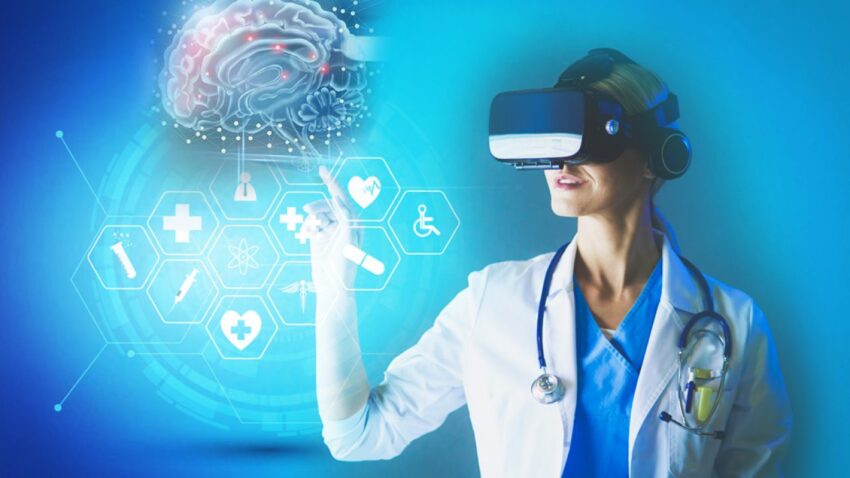
30 Apr How AI is Transforming Healthcare
Artificial Intelligence (AI) is revolutionizing the way we approach healthcare. It has become a game changer in the industry, providing faster, more accurate, and cost-effective solutions. In this article, we will explore how AI is transforming healthcare and how it is improving patient outcomes. The following content is presented by Statelesshomesteading
What is AI in Healthcare?

Image source: Google.com
AI in healthcare refers to the use of advanced algorithms and machine learning techniques to analyze complex medical data. It involves the use of intelligent systems that can learn from data and make predictions, identify patterns, and improve performance over time.
AI Applications in Healthcare
AI is transforming healthcare in many ways. Here are some of the most notable AI applications in healthcare:
Diagnostics and Imaging
AI is revolutionizing diagnostic and imaging techniques, providing faster and more accurate results. It can analyze images and identify patterns that are not visible to the human eye, allowing doctors to make more accurate diagnoses. See also: How Artificial Intelligence Will Change The Future
Drug Discovery and Development
AI is also transforming drug discovery and development. It can analyze vast amounts of data and predict the effectiveness of potential drugs, helping researchers to develop new treatments faster and more cost-effectively.
Personalized Medicine
AI is enabling personalized medicine by analyzing patient data and identifying individual risk factors. This allows doctors to develop tailored treatment plans for each patient, improving outcomes and reducing the risk of adverse effects.
Predictive Analytics
AI can analyze large amounts of data and predict future health trends, helping healthcare providers to anticipate and prevent diseases before they occur. This is particularly important in managing chronic conditions such as diabetes, where early detection and intervention can improve outcomes.
Benefits of AI in Healthcare
The benefits of AI in healthcare are numerous. Here are some of the most significant benefits:
Improved Patient Outcomes
AI can improve patient outcomes by providing faster, more accurate diagnoses and treatments. This can reduce the risk of complications and improve patient survival rates.
Increased Efficiency
AI can streamline healthcare processes, reducing the time and cost associated with traditional methods. This allows healthcare providers to treat more patients and allocate resources more effectively.
Cost Savings
AI can reduce the cost of healthcare by automating processes and reducing the need for expensive equipment and procedures. This can make healthcare more accessible and affordable for patients.
Improved Access to Care
AI can improve access to care by providing remote and virtual care options. This is particularly important in rural and remote areas where access to healthcare is limited.
Challenges of AI in Healthcare
While AI offers many benefits to healthcare, it also presents some challenges. Here are some of the most significant challenges:
Privacy and Security
AI requires access to large amounts of personal health data, which presents significant privacy and security concerns. Healthcare providers must ensure that patient data is secure and that privacy regulations are adhered to.
Regulation and Compliance
AI in healthcare is subject to strict regulations and compliance requirements. Healthcare providers must ensure that AI applications meet regulatory standards and are safe for patients.
Bias and Discrimination
AI algorithms are only as good as the data they are trained on. If the data is biased or incomplete, the AI system may produce biased results, leading to discrimination and inequality.
Conclusion
AI is transforming healthcare in many ways, providing faster, more accurate, and cost-effective solutions. It offers numerous benefits, including improved patient outcomes, increased efficiency, cost savings, and improved access to care. However, it also presents challenges, including privacy and security concerns, regulatory compliance, and the risk of bias and discrimination.
As AI continues to evolve and advance, it has the potential to revolutionize healthcare and improve patient outcomes on a global scale.

Sorry, the comment form is closed at this time.